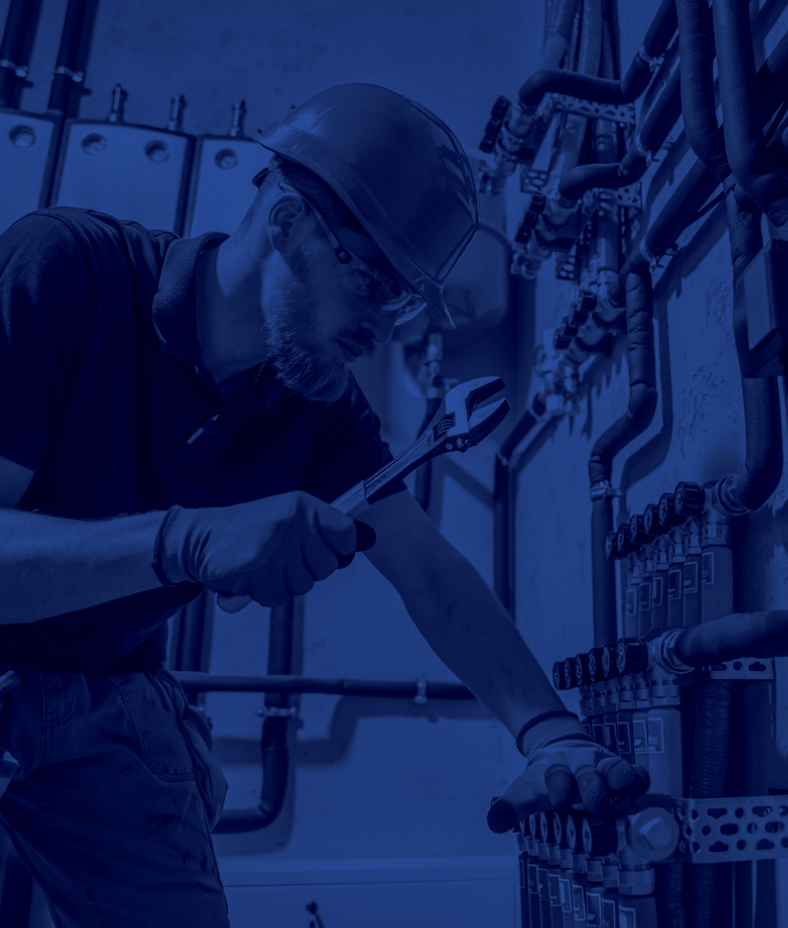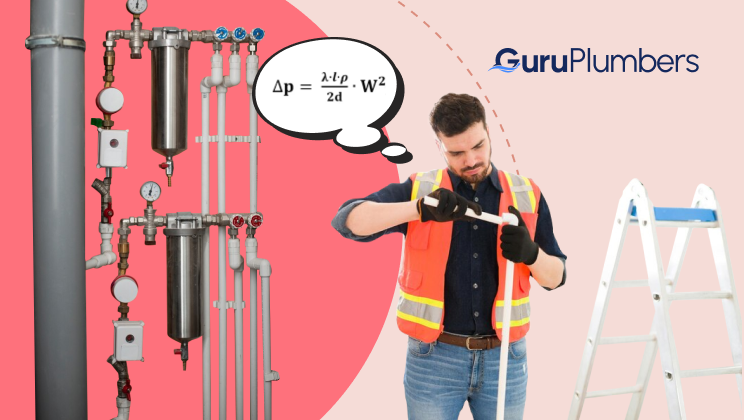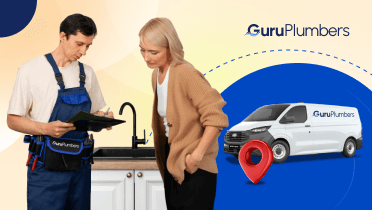Maintaining your home’s plumbing prevents costly repairs and ensures its efficiency. Neglecting plumbing issues can lead to significant expenses, including water damage and higher utility bills. This blog post will provide practical, money-saving tips for maintaining your plumbing efficiently.
Tip 1: Regular Inspections
Importance of regular plumbing inspections: Regular inspections help identify minor issues before they become major problems, saving you money and preventing water damage.
What to look for during inspections:
- Check for leaks in faucets, pipes, and under sinks.
- Make sure pipes are not corroded or rusted.
- Ensure all drains are clear and free-flowing.
- Look for water stains on walls and ceilings.
Benefits of early detection of issues:
- Reduces the risk of expensive repairs.
- Prevents water wastage, lowering your utility bills.
- Extends the lifespan of your plumbing system.
Tip 2: Fix Leaks Immediately
Common signs of leaks:
- Water stains on ceilings or walls
- Dripping faucets
- Damp or wet areas around sinks, toilets, or pipes
The impact of small leaks:
- Increased water bills
- Structural damage to walls, floors, and ceilings
- Mold growth and health hazards
Simple DIY fixes for minor leaks:
- Tighten loose connections with a wrench
- Replace worn-out washers or O-rings in faucets
- Use plumber’s tape on threaded pipe joints to seal leaks
Tip 3: Maintain Drains
Importance of keeping drains clear:
- Keeps backups and overflows from occurring by preventing clogs
- Ensures efficient drainage and reduces stress on plumbing
DIY methods for maintaining clean drains:
- Fill the drain with hot water, then add baking soda and vinegar
- Get rid of debris in the drain by using a plunger or drain snake
- Install drain screens to catch hair and food particles
Using natural drain cleaners instead of harsh chemical ones:
- Prevents damage to pipes and septic systems
- Reduces environmental harm and exposure to toxic chemicals
Tip 4: Insulate Pipes
Benefits of insulating pipes:
- Prevents freezing and bursting in cold weather
- Reduces heat loss, improving energy efficiency
- Lowers the risk of water damage and costly repairs
Cost-effective insulation materials and methods:
- Foam pipe insulation tubes
- Fiberglass pipe wrap
- Self-adhesive foam tape
How to insulate pipes yourself:
- Measure the length and diameter of pipes to determine insulation needs
- Cut insulation material to fit pipe lengths
- Wrap or slide insulation around pipes, securing with tape or clips
Tip 5: Know Your Plumbing System
Importance of understanding your home’s plumbing layout:
- Helps identify issues quickly
- Facilitates efficient repairs and maintenance
- Enhances emergency preparedness
Locating main shut-off valves:
- In most homes, this is found around the water meter or at the entry point of the main line
- Ensure all household members know the location
Being prepared for emergencies:
- Keep basic tools and supplies handy (wrenches, pipe tape, bucket)
- Prepare an emergency contact list, including a plumber you can trust
- Regularly check and test shut-off valves to ensure they function properly
Tip 6: Use Water Softener
How hard water can damage plumbing:
- Causes mineral buildup in pipes, reducing water flow
- Washing machines and dishwashers have a short lifespan
- Leads to frequent clogs and leaks
Benefits of using a water softener:
- Prevents mineral buildup in pipes and appliances
- Improves the efficiency of water-using appliances
- Enhances water quality for bathing and cleaning
Cost-saving advantages over time:
- Reduces repair and replacement costs for pipes and appliances
- Lowers energy bills by improving appliance efficiency
- Ensures that plumbing fixtures and appliances last longer
Tip 7: Regular Water Heater Maintenance
Importance of maintaining your water heater:
- Ensures efficient heating and reduces energy consumption
- Prevents sediment buildup that can cause damage
- Extends the lifespan of the water heater
How to flush and inspect the water heater:
- Turn off the power and water supply to the heater
- Fill the tank with water by attaching a hose to the drain valve
- Refill and flush until the water runs clear
- Inspect for signs of wear, rust, or leaks
Tips for extending the life of your water heater:
- Prevent overheating by setting the thermostat to 120°F
- Insulate the tank and pipes to maintain temperature
- Schedule professional inspections annually to identify and fix issues early
Tip 8: Install Water-Saving Fixtures
Types of water-saving fixtures:
- Low-flow showerheads
- Low-flow faucets
- Dual-flush toilets
Benefits of reduced water consumption:
- Lowers utility bills
- Conserves water, benefiting the environment
- Reduces strain on plumbing systems
Long-term savings on water bills:
- Significant reduction in monthly water usage
- Decreased energy costs for heating water
- Plumbing wear is reduced, resulting in lower maintenance costs
Tip 9: Educate Household Members
Encouraging responsible water use:
- Wash your hands or brush your teeth while the tap is off
- Take shorter showers
- Run dishwashers and washing machines only when full
Simple habits to prevent plumbing issues:
- Avoid flushing non-flushable items (e.g., wipes, sanitary products)
- Use drain screens to catch hair and food particles
- Regularly clean drains to prevent clogs
Involving everyone in maintenance tasks:
- Teach family members how to identify and fix minor leaks
- Show where the main shut-off valve is located
- Encourage participation in regular inspections
Final Thoughts
In summary, maintaining your plumbing system efficiently can save you significant money in the long run. Regular inspections, fixing leaks immediately, keeping drains clear, insulating pipes, understanding your plumbing system, using water softeners, maintaining the water heater, installing water-saving fixtures, and educating household members are all practical steps you can take.
Proactive maintenance is essential. It prevents costly repairs and water damage, ensuring your plumbing system operates efficiently and lasts longer. Start small with regular inspections and minor fixes, and gradually incorporate more of these tips to maximize your savings and maintain an efficient plumbing system.




